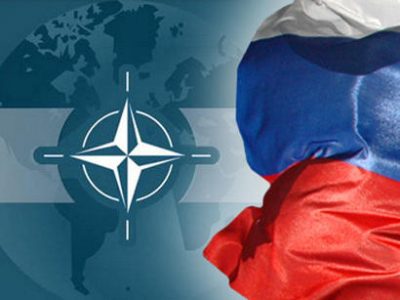Putin Offers NATO Inspections to Prevent Deployment of INF-Banned Missiles
US withdrew from the INF last year, which banned medium-range missiles

On Monday, Russian President Vladimir Putin offered mutual inspections of each other’s military bases to NATO to prevent the deployment of missiles banned under the Intermediate-Range Nuclear Forces (INF) Treaty.
The INF was signed between the US and the Soviet Union in 1987 and banned land-based cruise and ballistic missiles with a range of 500km to 5,500 km (310 to 3,410 miles). The treaty expired in August 2019 after the US withdrew, citing Russian violations.
“We reaffirm the commitment to the Russian Federation’s previously announced moratorium on the deployment of ground-launched intermediate-and shorter-range missiles as long as no similar class missile weapons of US manufacture emerge in the respective regions,” Putin said, according to Russia’s Tass news agency.
Putin offered access to sites in Kaliningrad, where the US has accused Russia of deploying 9M729 missiles. The US claims Russia’s 9M729 missiles are a violation of the INF, one of the reasons Washington cited to withdraw from the treaty, but Moscow insists the 9M729’s are a lower range than banned under the INF.
Still, Putin says Russia has not deployed the 9M729 in Europe. He is asking for access to US and NATO sites in Europe in exchange for Kaliningrad. Since the US withdrew from the INF, Washington has abstained from deploying INF-banned missiles to Europe but is seeking to deploy such missiles in Asia to face China.
Russia has argued that a US missile system deployed in Europe, known as the Mk 41 Aegis Ashore, violates the INF. Moscow says the MK 41 can launch Tomahawk missiles, but the US maintains the MK 41 is meant for defense purposes.
“In particular, it might be possible to consider verification measures regarding the Aegis Ashore systems equipped with Mk 41 launchers at US and NATO bases in Europe and the 9M729 missiles at Russian military facilities in the Kaliningrad Region,” Putin said.
“The purpose of such verification measures would be to confirm the absence from the facilities, encompassed by the agreements, of ground-launched intermediate and shorter-range missiles as well as weapons whose parameters and classification have remained a controversy between the two parties (Russia’s missile 9M729).”
Putin’s offer comes as the fate of the last nuclear arms control treaty between the two powers remains uncertain. The New START limits the number of warheads each country can have deployed. The treaty will expire in February 2021 if an agreement is not reached. Moscow has offered to extend the treaty for five years with no preconditions, as it allows, but the US is demanding more.
Putin recently offered to temporarily extend the treaty for one year in exchange for a freeze on both countries’ nuclear arsenals, a key US demand. The US State Department welcomed Putin’s offer, and negotiations to finalize a deal are expected to start soon.
*
Note to readers: please click the share buttons above or below. Forward this article to your email lists. Crosspost on your blog site, internet forums. etc.
Dave DeCamp is the assistant news editor of Antiwar.com, follow him on Twitter @decampdave.

